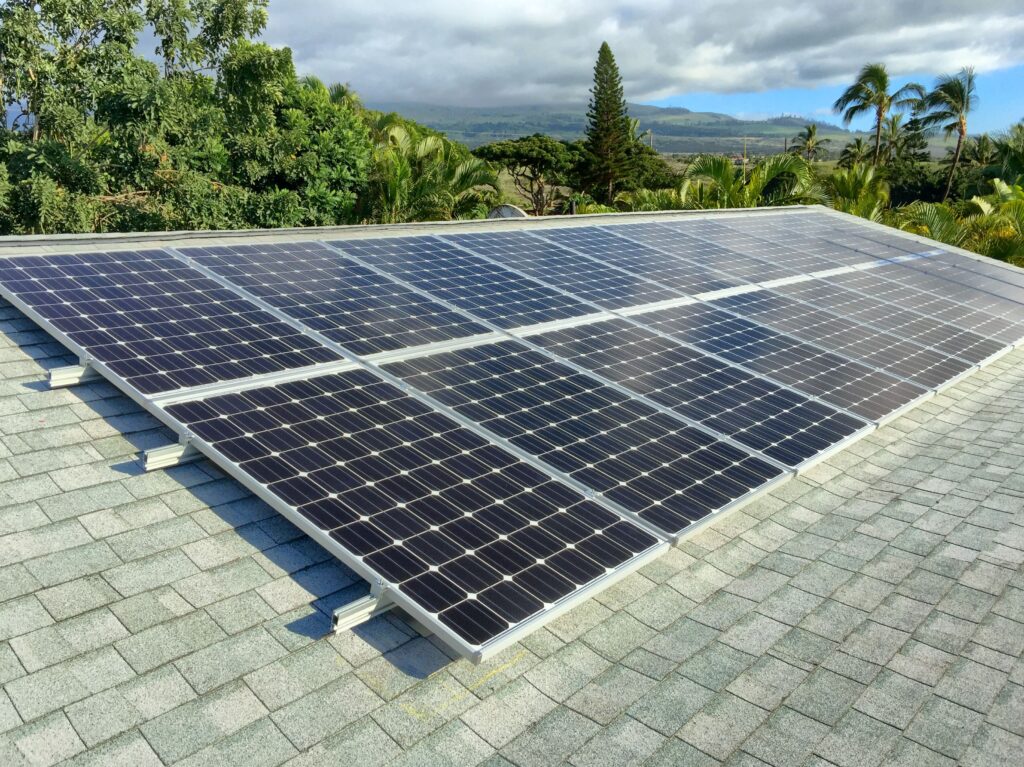Are solar panels worth it in Hawaii?
There are several reasons why having solar panels installed on your rooftop in Hawaii is better than consuming power generated through fossil fuels and supplied by your electricity company.
Why solar panels are worth it in Hawaii
Here’s why solar panels are worth it in Hawaii:
Save more on electricity
On average, Hawaii residents consume about 515 kilowatts (kW) per month and around 0.37 per kilowatt-hour (kWh). That’s an average electricity bill that adds up to about $190.36 per month.
Solar panels are worth it in Hawaii because the average Hawaii homeowner can save up to 294.93 per month which adds up to $3539.16 per year. That means the average solar panel owners can have their solar system pay for itself within six years.
It’s more cost-effective
Are solar panels worth it in Hawaii? Considering the current price of electricity in Hawaii which is an average of 0.37 per kW, and high amounts of sunlight, which is about 8% more than average compared to the rest of the country, solar power in Hawaii is 238% more cost-effective than in other states in the country.
Enjoy tax credits and a higher ROI
Let’s dig deeper. After claiming the 26% solar tax credit, (you can read about Hawaii’s renewable incentive and how to get pre-approval for solar in Hawaii to learn more), the average cost of an installed residential solar panel is just about $12,000. But that amount depends on the size of your solar system, your home’s energy consumption, and the solar installer you choose.
Cheaper to acquire
Over the last ten years, the cost of solar panels has fallen by more than 80%. Even more, the net metering law and the federal government’s 26% solar tax credit make investing in solar a smart decision. That means you can get a higher ROI (return on investment) from the property investment and the solar share market.
More so, consider how much money you may end up paying for electricity bills for the next 25 years and the benefits of having solar without bothering about electricity bills for that same period.
Hawaii state tax credit
The state of Hawaii is offering a 35% solar tax credit for purchased home solar systems via a program known as the Renewable Energy Technologies Income Tax Credit (RETITC). Combined with the federal tax incentives, homeowners in Hawaii can save big on their solar tax investments.
Net metering
Net metering is one of the reasons solar panels are worth it in Hawaii. While full retail net metering is not offered in Hawaii, you can get two alternatives of solar tariff options. The customer self-supply tariff and the customer grid-supply plus tariff.
The customer grid-supply plus tariff is a process whereby the homeowner exports all energy their solar system generates to the grid for a rate that is lower than the retail price of electricity. Customers that opt for the self-supply tariff are unable to export any power to the grid. Rather, they are required to use all the electricity their solar panels generate. However, homeowners can use solar battery storage to store the excess energy generated by their solar panels.
Sunshine Savings: The Case for Solar Panels in Hawaii’s Energy Landscape
The question of whether solar panels are worth it in Hawaii is answered with a resounding “yes.” With abundant sunshine and high electricity rates, investing in solar energy systems can deliver substantial savings for homeowners and businesses across the islands. Beyond financial incentives, solar power offers environmental benefits and energy independence, making it a valuable long-term investment in Hawaii’s sustainable future.
As the state continues to prioritize renewable energy initiatives, going solar presents an opportunity for individuals to contribute to the transition to clean, renewable energy while enjoying the tangible benefits of reduced energy costs and increased home value.



